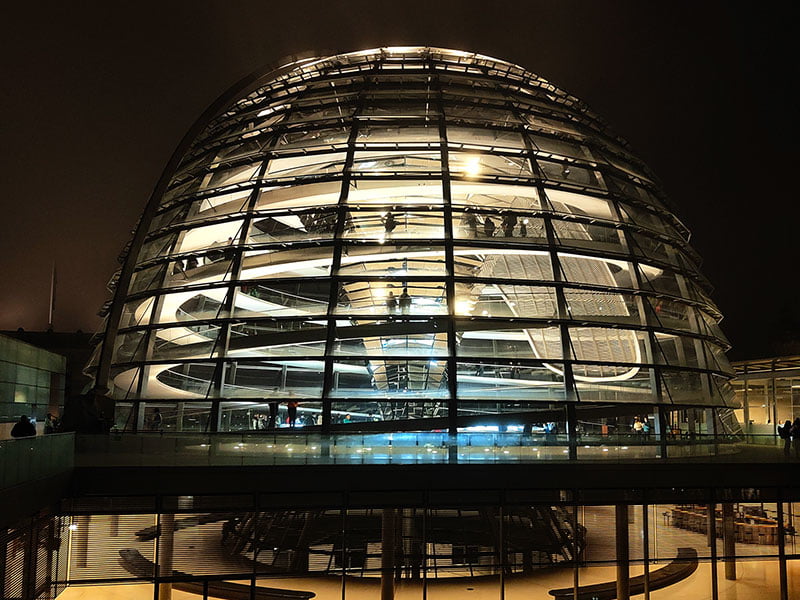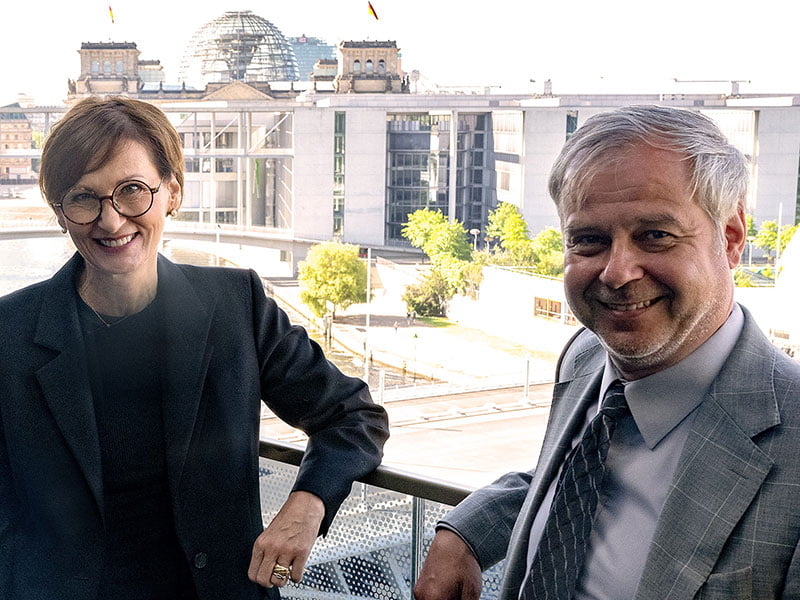Whatever strategic importance had been placed on the Australia-Germany Hydrogen Accord signed in 2021 has taken on significantly greater urgency as 2022 has unfolded.
The naked aggression of Russia’s invasion of Ukraine has shocked Europeans, just as gas shortages and soaring energy costs have forced governments to scramble to fill gaps as winter arrives.
A renewed focus on supply chain risk and domestic capability was already well underway before the war in Ukraine. The energy crisis in Europe has merely intensified that examination of supply chains by governments across the world.
The public debates in Germany about the war, gas shortages and energy price spikes have taken some interesting turns.
For one thing, there is a view among Germany’s government, business and technology leadership that the energy shocks delivered in 2022 and the scramble to meet the needs of industry and households, has actually accelerated the shift from fossil fuels and the decarbonisation of the economy.

This is despite the government announcing it would prolong the operation of several coal-fired power plants in the short term and to delay the phasing out of Germany’s three remaining nuclear plants ahead of winter.
German chancellor Olaf Scholz used a speech to the climate summit in Sharm e-Sheik in Egypt to recommit to Germany’s existing plans to exit the use of coal entirely by 2030 and to meet its existing emissions reductions targets.
“There must not be a worldwide renaissance of fossil fuels,” the chancellor told the conference. “And for Germany I can say: there will not be one.”
That is a pervasive view among leaders that I spoke with during an InnovationAus.com visit to Germany in early November. There has been a hardening of resolve to reduce reliance on Russian gas, and to get this enormously challenging transition done sooner rather than later.
What an epic, global-scale irony it would be if the geostrategic miscalculation of Vladimir Putin to invade Ukraine were to accelerate the shift of its biggest customer away from Russian gas.
And this is what is happening in Germany right now. The war in Europe, variously described as “a disaster” and “a catastrophe” is driving a broadened public debate about an accelerated transition from fossil fuels.
In this article, we look at the green hydrogen sector and the prospects for the Australia-Germany Hydrogen Accord signed in 2020.
In the coming days and weeks, these pages will feature interviews from across the German innovation ecosystem, from the circular economy leadership at the grassroots organisation Circular Berlin, to Berlin Science Week, to an interview with a senior advisor to the European Raw Materials Alliance (ERMA) on critical minerals.
Other interviews include the experience of the IT industry association BITKOM, created 20 years ago through the amalgamation of competing groups into a single, powerful entity; a discussion with the industry not-for-profit VDI/VDE Innovation and Technik on the highly successful Central Innovation Program for SMEs; and interviews with the leadership of multiple Fraunhofer institutes on the structure of research organisations.
Green hydrogen
The transition of German industry from fossil fuels is very much the focus for Till Mansmann, the Innovation Commissioner for Green Hydrogen within the German Federal Ministry of Education and Research. Mr Mansmann is also a member of the German parliament and a part of the ruling federal Coalition.
From a grassroots perspective, he says ambitious emissions reductions targets have enjoyed strong political support from the German public.
But strategies for meeting arguably the biggest emissions challenge – the transition of German heavy industry from its reliance on fossil fuels – has been somewhat absent from the mainstream debates on climate.
He says the Russian invasion of Ukraine and its dark demonstration of how many German jobs and how much German wealth is reliant on Russian gas has brought that industrial transition challenge more directly into the public conversation.
Germany and Australia released national hydrogen strategies within months of each other in 2019 and 2020. The two countries then formalised a cooperation via the Australia-Germany Hydrogen Accord in 2021.
Mr Mansmann says the politics related to the transition of industry to renewable energy has changed.

“I have been in the federal parliament since 2017 and in the past four to five years there has been hardly any deep discussion about energy or energy consumption in relation to industrial production in Germany – even though we have been so dependent on fossil fuels and importing energy,” Mr Mansmann said.
The broader public discussion about the transition of industry away from Russian gas began with the start of the Russian invasion.
The transition of German industrial production to renewables is an important public debate. But discussions about green hydrogen technology – the entire focus of his current political role – is “not going to keep our houses warm through the winters over the next two to three years.”
Regardless, Mr Mansmann says Germany’s ambitions for green hydrogen as an alternative energy source has been accelerated. It wants to see well-formed and robust global supply chains in place by 2030, and to scale the industry such that green hydrogen provides as much as 50 per cent of German industrial energy consumption by 2045.
Germany is working on both the supply-side and demand-side of the development of a global market for hydrogen. It has entered similar collaborative arrangements for the production of green hydrogen with Namibia and Canada, and it is spending billions on R&D aimed at re-tooling industrial processes – particularly in the steel production and chemical industries.
“It is a little bit like a chicken and egg situation – which comes first, demand or supply? We know that both are important. We know that we have to accelerate research in order to achieve large-scale production,” as well as the significant innovation required to replace natural gas with green hydrogen.
“The partnership with Australia and countries like Australia are crucial. Because we believe these processes in terms of innovation, research and innovation [for the] supply and import of green hydrogen can be achieved much faster,” Mr Mansmann said.
“I am fully convinced that by 2045 and beyond that Germany will be depended on the supply of green hydrogen from Australia and from other countries, and I am convinced that the import of this type of energy will still be cheaper than the energy we produce in Germany by renewables.”
A key component of the collaboration between Australia and Germany on hydrogen has been the creation of a Hydrogen Innovation and Technology Incubator called HyGATE to support ‘real-world’ pilot, trial, demonstration and research projects across the hydrogen supply chain.
Australia has committed $50 million to establish HyGATE while Germany has committed €50 million. The accelerator is about scaling production in this country.
The Albanese Government in its October federal Budget committed $71.9 million to building a regional hydrogen hub in Townsville to fast-track the development of a local green hydrogen industry, bringing the government’s planned investment in regional hydrogen hubs to $525 million.
Green hydrogen gets mixed reviews as a strategy for emission reductions, and there remain questions markets about whether the industry can scale, and whether a global market for hydrogen as a commodity is likely.
But it’s not for lack of focus or political will, whether that’s in Germany or in Australia.
It is worth noting that the energy turmoil created by the Russian invasion of Ukraine has put attitudes to nuclear energy into a different light. This is certainly the case in Germany, where a further extension of the life its three remaining nuclear plants is being actively discussed.
These plants were scheduled to be mothballed at the end of 2022. In response to the energy crisis, the German Chancellor ordered an extension of the nuclear plants through the current northern winter into spring 2023.
It is certainly worth noting that Till Mansmann, the German parliamentarian and Innovation Commissioner for Green Hydrogen, believes that nuclear power will have an important role to play in German decarbonisation efforts – and it is a long-term role, he says.
Mr Mansmann is a member of the Free Democratic Party within the German Coalition government. The extension of nuclear energy production was a short-term decision of the Chancellor. The three Coalition partners have not yet landed on an official government view.
“I can tell you what I think personally, although I can’t say whether my personal view will be represented as a position of the Coalition,” Mr Mansmann said.
“But I think globally that nuclear energy – the production of energy with nuclear power – is essential in order to phase out carbon dioxide emissions globally,” he said.
“I am a trained physicist and I probably have a rather technical view on this issue. But I really believe that the technology of nuclear power acts as an important pillar, providing the basic foundation for energy production for the industry base, and also for private consumption.
“That is, nuclear power can provide a small share of overall energy, but on a very stable basis. And I think that we should use this.”
This could mean the construction of new nuclear installations in Germany in the future, Mr Mansmann said, plants that produce less waste, offer higher levels of energy security, and are a stable supply of energy.
“I can imagine that even after 2045 when I am convinced that at least 50 per cent – if not more – of the energy needed for industrial production will come from green hydrogen, that nuclear power will still play an important role in our energy mix,” he said.
“Prolonging nuclear does not decrease the necessity – or hinder or change – the necessity to improve and accelerate innovation in the field of green energy.”
The focus on improving access to more abundant sources of green energy is a settled political question in Germany. The debate about the role of nuclear power is more active now than it has been for years.
Do you know more? Contact James Riley via Email.

